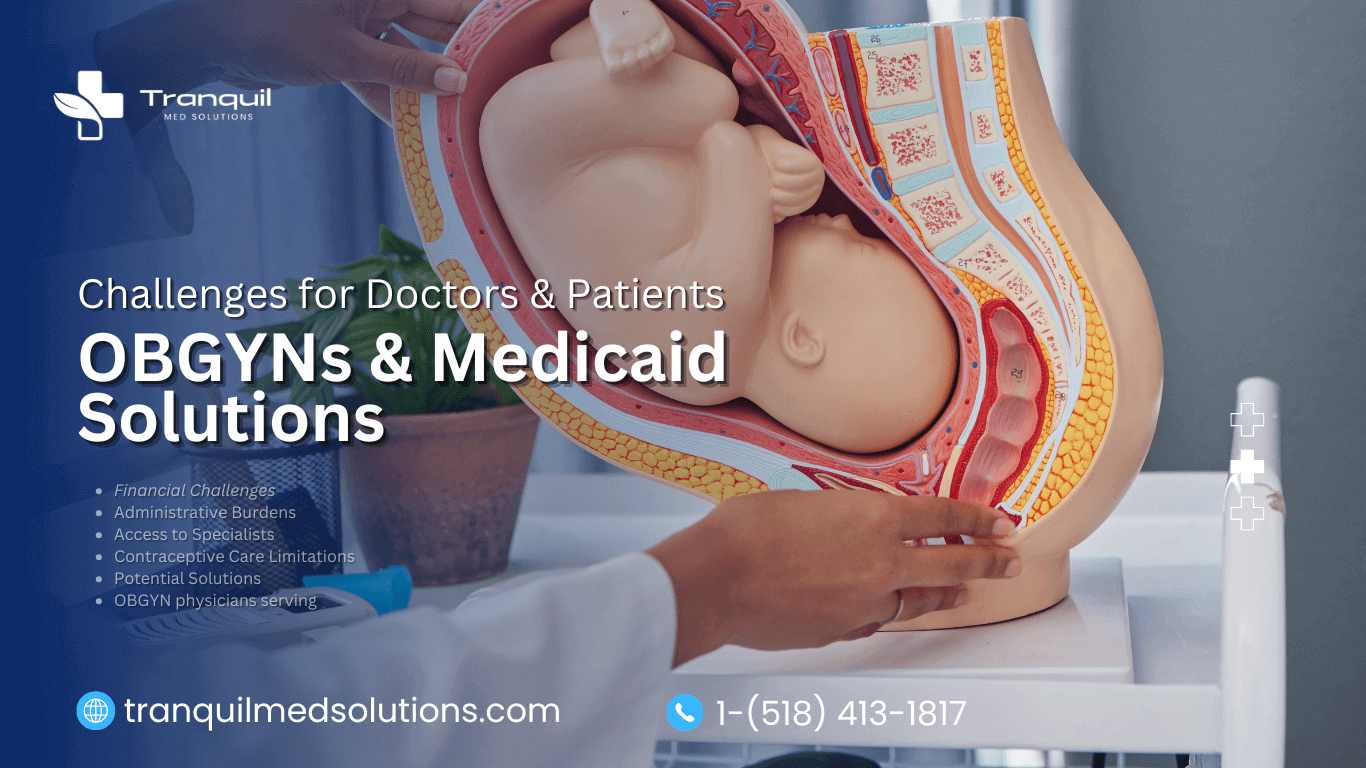Credentialing is a critical process for OB/GYN providers, ensuring that they meet industry standards and can continue offering their essential services without interruption. Although the credentialing process might initially seem overwhelming, it plays an essential role in establishing your practice’s credibility, securing insurance reimbursements, and maintaining compliance with state and payer regulations.
In this guide, we will walk you through the OB/GYN credentialing process, its significance, potential challenges, and how professional credentialing services can simplify the experience.
What is OB/GYN Credentialing?
OB/GYN credentialing is the process of verifying a provider’s qualifications to practice obstetrics and gynecology. This ensures healthcare providers meet regulatory standards and can join insurance networks for reimbursement. Credentialing typically includes verifying the following key areas:
- Education: Completion of a medical degree (MD or DO) from an accredited institution is the foundational requirement for OB/GYN providers.
- Residency Training: A 4-year residency in obstetrics and gynecology is essential, covering vital clinical experience in areas such as pregnancy care, childbirth, and reproductive health.
- Board Certification: Passing the American Board of Obstetrics and Gynecology (ABOG) exam confirms a provider’s expertise in the field.
- Licensure: Providers must meet state-specific requirements, including exams and compliance with professional standards.
Credentialing ensures that OB/GYN providers possess the necessary qualifications and meet state and federal requirements to provide safe and effective care.
Why Is Credentialing Important for OB-GYN Providers?
Credentialing is not just a procedural formality; it is integral to the success of your OB/GYN practice. Here’s why credentialing is so important:
- Building Patient Trust: Patients seek out healthcare providers who meet the highest standards. Credentialing assures patients that your qualifications are legitimate and verified.
- Enabling Insurance Reimbursements: Credentialing is necessary for joining insurance networks, which allows you to offer services to a wider patient population and secure timely reimbursements.
- Ensuring Regulatory Compliance: Credentialing ensures you remain compliant with evolving healthcare laws and regulations, protecting your practice from legal complications.
- Supporting Financial Growth: Proper credentialing helps reduce claim denials and strengthens relationships with insurers, resulting in improved cash flow and practice sustainability.
OB-GYN Credentialing Process
Credentialing involves several steps, which can be complex. However, understanding each phase makes the process more manageable:
1. Document Preparation
The credentialing process begins with gathering the necessary documents, including:
- Proof of education (medical school degree).
- Residency completion certificates.
- ABOG board certification.
- State medical license.
- Malpractice insurance.
- DEA number (if applicable).
- National Provider Identifier (NPI) number.
Having accurate, updated documentation ready is key to avoiding delays.
2. Application Submission
Once the documents are ready, the next step is submitting enrollment applications for each insurance payer and healthcare network. This includes completing detailed forms and ensuring compliance with state-specific requirements.
3. Verification Process
After submission, insurance networks and regulatory bodies verify the provided information. This includes checking your educational background, licensure, and certifications. Verification can take weeks or even months, depending on the payer.
4. Follow-Up and Communication
Insurance companies often request additional information or clarifications. Responding promptly to these requests helps avoid delays in the process.
5. Approval and Network Enrollment
Once your credentials are verified, you will be enrolled in the insurance networks, allowing you to offer services to insured patients and receive reimbursements. in the insurance networks, allowing you to offer services to insured patients and receive reimbursements.
6. Re-Credentialing and Maintenance
Credentialing is an ongoing process. Insurance networks and regulatory bodies require providers to re-credential periodically (usually every two to three years). This involves:
- Updating your credentials.
- Submitting new documentation if there are changes in your practice.
- Staying compliant with new regulations.
Common Challenges OB/GYN Providers Face During Credentialing
The credentialing process is often lengthy and complicated. Here are some common challenges OB/GYN providers face:
- Extensive Paperwork: The volume of paperwork required can be overwhelming, especially when managing multiple insurance companies.
- Communication Delays: Continuous back-and-forth with insurance networks can slow the process down.
- Changing Regulations: Healthcare regulations and payer requirements are constantly evolving, making it challenging to keep up-to-date.
- Denials and Errors: Even minor errors in applications can result in claim denials, delaying reimbursement and affecting revenue.
How Professional Credentialing Services Can Help
Outsourcing your credentialing to experts like Tranquil MedSolutions can streamline the process, reduce errors, and save valuable time. Here’s how we simplify the credentialing journey for OB/GYN providers:
1. Document Collection and Organization
We assist with collecting, reviewing, and organizing all the required documents, ensuring they are complete and accurate before submission.
2. Application Preparation and Submission
Our team handles all aspects of filling out and submitting the necessary enrollment applications, minimizing the risk of mistakes.
3. Verification and Follow-Up
We monitor your application’s progress, address any queries from insurance networks, and keep you informed every step of the way.
4. Re-Credentialing Management
We track your re-credentialing deadlines, update your credentials, and ensure that your practice stays compliant with the latest regulations.
Enhancing OB/GYN Medical Billing Through Credentialing
Credentialing directly influences your practice’s billing operations. Without proper credentials, claims can be denied, leading to revenue loss. Here’s how credentialing supports billing:
- Accurate Coding: Credentialing ensures you meet payer requirements, enabling precise coding and billing for OB/GYN services.
- Denial Prevention: Proper credentialing reduces errors and denials in claim submissions.
- Improved Reimbursements: Participation in insurance networks maximizes revenue potential.
Ready to Simplify Your Credentialing Process?
Partnering with a credentialing expert allows you to focus on what truly matters—providing exceptional care to your patients. Let Tranquil MedSolutions handle the complexities of enrollment, ensuring your practice remains compliant, efficient, and financially successful.
Contact us today (1-(518) 413-1817) to discuss how we can support your OB/GYN credentialing needs.




